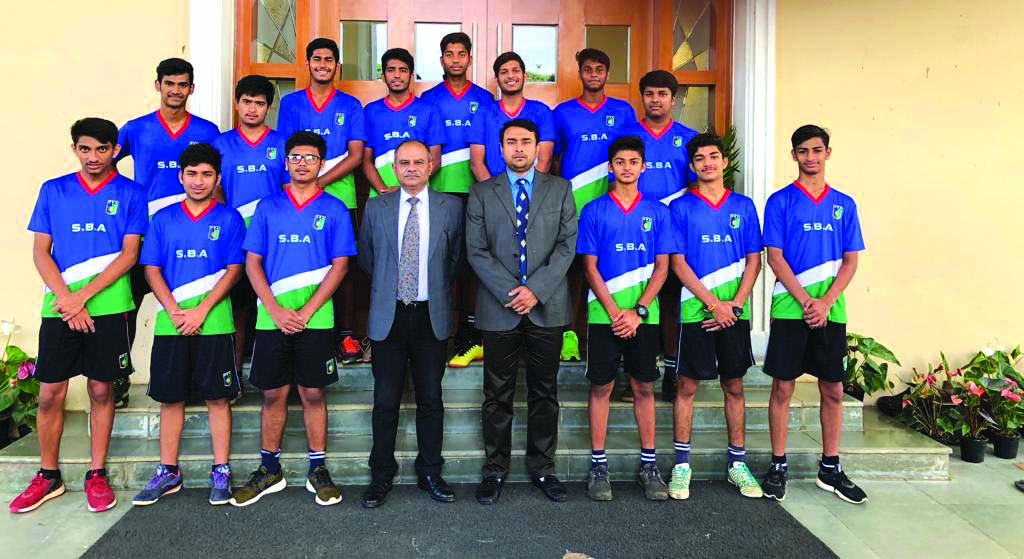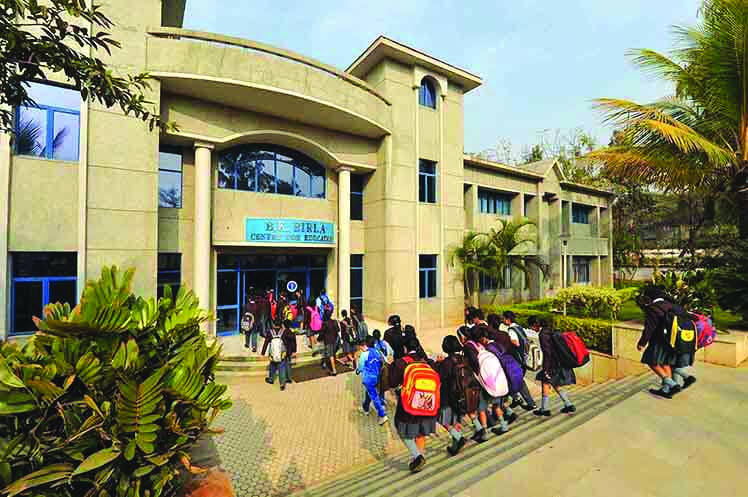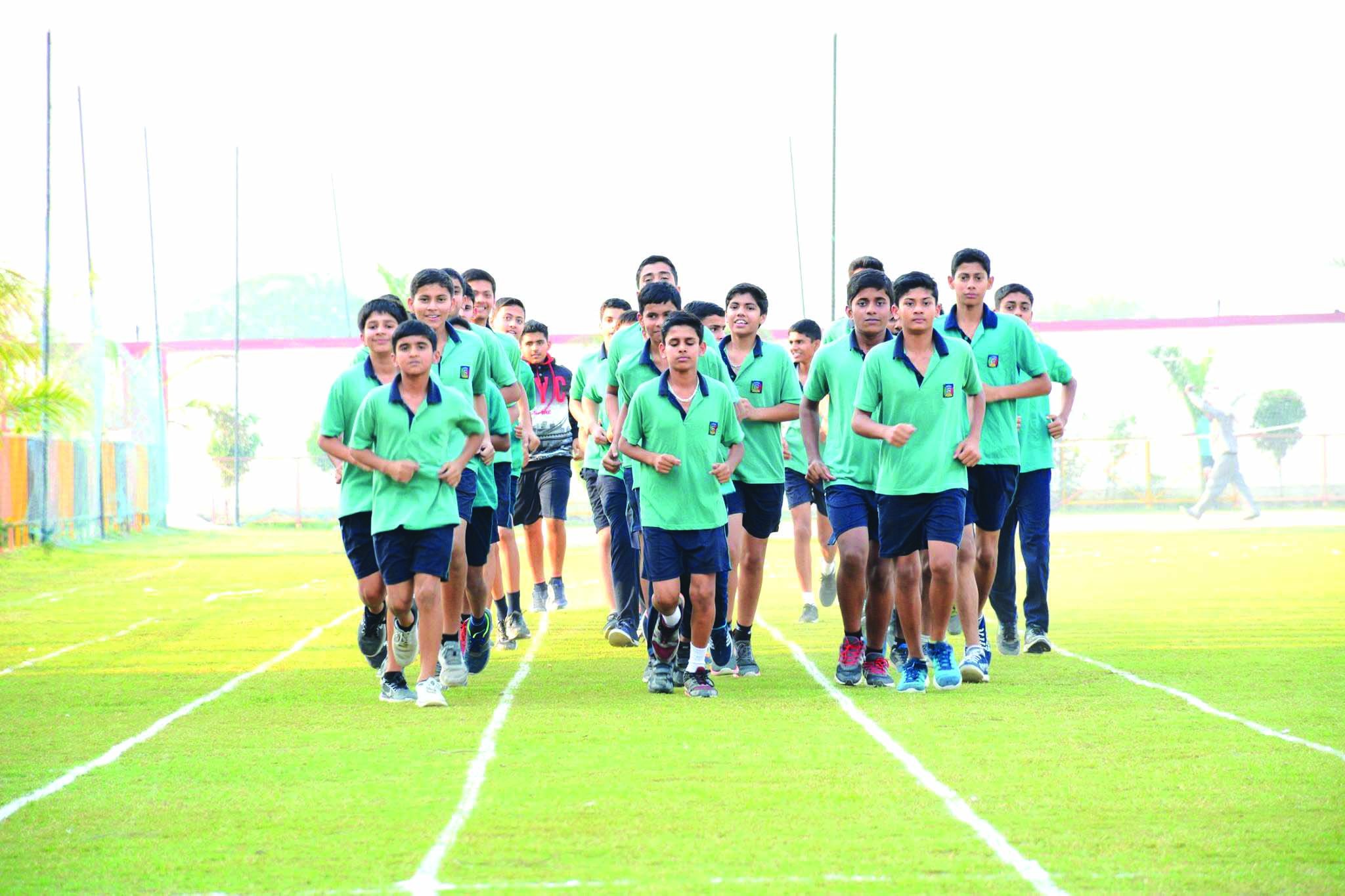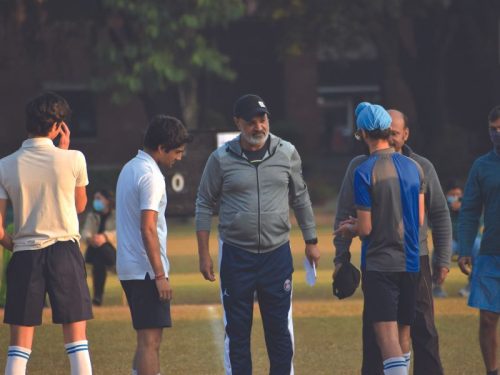India’s best boy’s boarding schools 2022-2023
With several hitherto highly ranked boys boarding schools including Mayo College, Ajmer, Scindia School, Gwalior, Bishop Cotton, Shimla and St. Paul’s, Darjeeling among others transferred to the new vintage legacy category, there’s been a major rearrangement of seating in this league table

TDS headmaster Dr. Jagpreet Singh
The history of modern primary-secondary education has been profoundly influenced by boys boarding schools. Initially boarding schools were promoted in 15th century England to provide board and lodging to orphaned children of the working class obliged to farm the sprawling estates of nobility, slog in coal mines and serve as household menials. Soon the English upper class, stiffly unanimous that children should be seen and not heard because they may distract them from their Downton Abbey and Bridgerton-style round of balls, soirees and dinner parties, discovered the virtues of packing male children off to elite boarding schools such as Eton (estb.1440), Harrow (1572) and Winchester (1382) among others to learn upper class conformity, discipline, self-reliance and healthy disdain for the working class.
With the passage of time and as imperial Britain more by happenstance and luck evolved into a major military and industrial power, this lonely wind-swept country’s elite boarding schools acquired a legendary reputation for shaping battle-winning generals and administrators of the British empire. Author Thomas Hughes glorified Rugby College in his enduring bestseller Tom Brown’s School Days and the Duke of Wellington famously attributed his glorious victory in the Battle of Waterloo (1815) to his education on the playing fields of Eton.
[userpro_private restrict_to_roles=
In 18th century India, after the Sepoy Mutiny of 1857 (aka India’s first War of Independence) was brutally supressed and the British Crown dropping all pretence, took direct charge of administering the Indian subcontinent, upper class British governors general were quick to discern the advantages of replicating Britain’s famous boarding schools, which would leave parents free to conquer and subjugate the natives in India, in expensively developed rest and recreation hill stations in salubrious climes. Hence, Christian, especially Anglican Church of England missionaries, were actively encouraged to promote British boys boarding schools in the subcontinent.
Thus several British-style boys (and impressively progressive co-ed boarding) schools including Bishop Cotton Boys. Shimla (1858) and Bangalore (1865); Lawrence School, Sanawar (1847) and Ooty (1858). Sherwood College, Nainital (1869) among others, were established to educate the progeny of the British ruling class in India. For over half a century, these schools admitted only white and Anglo-Indian children though a few exceptions were made in favour of highly placed Indians from the 1930s onward.
Meanwhile special lavishly endowed primary-secondaries — Mayo College, Ajmer (estb. 1875), Daly College, Indore (1882) and Rajkumar College, Rajkot (1868) among others — were promoted to educate the children of the maharajahs, rajahs and potentates of pre-independence India’s 525 princely states. For the first time, these and other schools of more than 90 years vintage classified as ‘vintage legacy schools’ are separately ranked inter se in various categories in the EducationWorld India School Rankings 2022-23.
Meanwhile the difficulties and humiliation experienced by upper class Indians to enrol their children in vintage legacy, especially boarding schools, prompted Satish Ranjan Das, a successful Calcutta-based barrister to promote The Doon School Dehradun (TDS) in 1935 for male children of newly-emerging Indian elites. Drawing heavily on the model of Britain’s best ‘public’ (i.e, private, exclusive) boys boarding schools, TDS began its innings with a British headmaster Arthur Foot, drawn from Eton College and was overtly inspired by nationalistic impulses of India’s freedom movement which was gathering momentum at the time. Superbly managed and nurtured by successive boards comprising high-ranked Indian civil servants after India attained freedom from British rule in 1947, and administered by successive British headmasters until 1970, TDS became the boys boarding school of choice of the Indian elite. Students included Rajiv and Sanjay Gandhi, grandchildren of prime minister Jawaharlal Nehru among other notables of the civil service and India Inc.
Unsurprisingly since the unprecedented EWISR league tables were introduced in 2007, TDS has been ranked India’s #1 boys boarding school, except in one year (2020). Because ill-advisedly, the TDS board turned the clock back in the new millennium and appointed two British headmasters of no special distinction — Peter Mclaughlin (2009-16) and Matthew Raggett (2016-20) — during whose reign the school suffered considerable reputation erosion, although not top rank in the annual EWISR.
However, Raggett’s declared intention to transform the CISCE (Delhi)-affiliated TDS into a wholly international primary-secondary affiliated with the Geneva-based International Baccalaureate examinations board, and the fact that more higher secondary students wrote the IB diploma school-leaving exam this year, prompted our partner organisation C fore to classify TDS as an international school for EWISR 2022-23.
This gave rise to strident protest from TDS leaders and the incumbent and former headmasters who argued that S.R. Das, founder-promoter of the school, was driven by nationalist impulses to establish TDS which cannot and should not, be classified as an international institution. Even though it’s an IB (Geneva)-affiliated school, it is also affiliated with CISCE, Delhi and the majority of students are in the CISCE stream. In the circumstances, and also given that even within the category of international residential schools it was awarded the highest total score and rank, the rating agency C fore and your editors restored TDS to the boys boarding school category. But since Welham Boys, Dehradun was already apprised of its #1 ranking, TDS is co-ranked #1 + in EWISR 2022-23.

SBA’s Santanu Das
Given these twists and turns and confusion about classification and resolution of the problem, it’s unsurprising that Dr. Jagpreet Singh, alum of Rajasthan University, Jaipur and former principal of the low-profile Punjab Public School, Nabha which he nurtured into a national Top 10 co-ed boarding school during his ten-year stint there and appointed headmaster of TDS in 2020, is “humbled” by the #1+ rating awarded to this venerable boys boarding school.
“I regret the confusion about our classification, but TDS which was born out of strongest nationalistic impulses can never be classified as an international school. Therefore, I am grateful that EW and C fore took the tough call and restored us to the appropriate league table and our rightful position,” says Singh.
Dr. Singh who was appointed to the headmaster’s office during the height of the pandemic after Raggett was abruptly sacked in 2020 by the board of governors while on holiday abroad, is satisfied that the school has emerged unscathed and stronger from the pandemic lockdown. “Even prior to the lockdown, TDS had begun to integrate new digital technologies into our classrooms in a big way. Therefore, the switch to online teachinglearning was a smooth transition for our teachers and students, and served the useful purpose of accelerating the digital process. This is reflected by our excellent score under the parameter of curriculum and pedagogy and digital readiness. The top scores awarded to us under the competence of faculty and infrastructure parameters are also testimony to TDS having emerged stronger after the Covid-19 lockdown.
This is also testified by our excellent board exam results with our cohort who wrote the class XII ISC exam averaging 89.8 percent, and IB diploma students averaging 39 out of a maximum 45. Consequently this year, we recorded our best university admissions ever with our school-leavers admitted into seven US Ivy league universities with generous scholarships,” says Singh.
With several hitherto highly ranked boys boarding schools including Mayo College, Ajmer, Scindia School, Gwalior, Bishop Cotton, Shimla and St. Paul’s, Darjeeling among others transferred to the new Vintage Legacy category, there’s been a major reshuffle of seating in the Top 10 table.
After TDS and Welham Boys jointly ranked #1, several boys boarding schools promoted by trusts registered by the well-reputed Birla Group of companies have recorded impressive gains. The low-profile Sarala Birla Academy, Bengaluru (SBA) has been promoted to #2 nationally (and #1 in Karnataka state) as against #6 in 2021-22, followed by the Vidya Niketan (Birla Public School), Pilani (Rajasthan) at #3 (6). Moreover, Birla Vidyamandir, Nainital is ranked #4 (9) and B.K. Birla Centre for Education, Pune #6 (11). Quite clearly in its characteristically low-profile style, the business house of Birla has bested its traditional business rival Tata Group in the education sector.

B.K. Birla Centre for Education, Pune
“The idea to rank vintage boys boarding schools among themselves in a separate league table is rational because old well-established schools have the advantage of age and recall, compared to relatively new institutions. Therefore, I am thrilled that our comparatively young school has positively impacted your informed sample respondents who have ranked us #2 nationwide and #1 in Karnataka. I am especially glad that we have been awarded high scores under the parameters of teacher welfare and development, academic reputation and pastoral care because these are core focus areas for us in SBA. Moreover, we have capped our admission at 400 boys because providing individual attention and mentorship is also a high priority for our 50 teachers. This is also reflected in the good score we have been awarded under the parameter of pastoral care,” says Santanu Das principal of SBA since 2006. A physics and business management alumnus of the Viswa Bharati University, Santiniketan and Symbiosis university, Pune, Das acquired essential teaching and admin experience as principal of the Assam Rifles Public School, Shillong (1986-2006) and in the Aditya Birla Public School, Renusagar prior to his appointment as principal of SBA in 2010. As such, Das has played a major role in nurturing SBA (estb. 2004) into the country’s second-ranked boys boarding school.
With nine boys boarding schools which were highly ranked in the annual EWISR for the past 14 years moved to the new vintage legacy league table this year, almost all relatively young boys boarding schools have significantly improved their rankings in EWISR 2022-23.
For instance Atmiya Vidya Mandir, Surat has been promoted to # 8 from #22 in 2021-22; Bhaktivedanta Gurukula, Vrindavan to #9 (24) and #1 in Uttar Pradesh (pop. 215 million); The Gurukul, Nilokheri to #10 (27); and BAPS Swaminarayan, Vidyamandir, Vadodara to #12 (32).

The Gurukul, Nilokheri students
For full list, please visit:EW India School Rankings 2022-23 – Top & best schools in India
[/userpro_private]
















Add comment